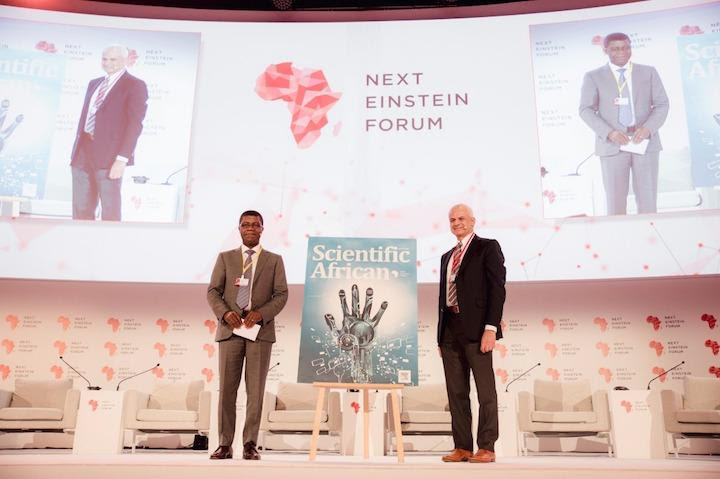The Next Einstein Forum (NEF), an initiative of the
African Institute for Mathematical Sciences (AIMS) has partnered with Elsevier to provide editorial expertise, infrastructure and a capacity building engine for the next generation of African researchers. This partnership will see the creation of a new pan-African, peer reviewed, open access publishing journal, dedicated to boosting the global reach and impact of research by Africans.
Scientific African will generate increased visibility for African researchers and provide a platform to share their research with the global community. Despite the digital revolution, African researchers continue to suffer from a lack of global exposure. They will now benefit from Elsevier’s existing journal infrastructure and expertise to publish their research across a wide range of scientific disciplines. Scientific African is being launched at the
Next Einstein Forum Global Gathering 2018 being held in Kigali, Rwanda,
March 26-28, 2018.”
Scientific African is central to the Next Einstein Forum’s vision of propelling Africa onto the global scientific stage. What better way to do this then by actively publishing the groundbreaking discoveries and excellent research of African scientists?” said Mr. Thierry Zomahoun, President and CEO of AIMS, and Founder and Chair of NEF. “The NEF is committed to promoting scientific excellence and collaboration in Africa. We believe the two go hand-in-hand to improve scientific output and outcomes and we are happy that
Scientific African will be led by the NEF’s brilliant Community of Scientists.”
|
|
|
(L to R): Mr. Thierry Zomahoun, President and CEO of AIMS, and Founder and Chair of NEF and Ron Mobed, Elsevier CEO
|
The journal’s mission is to widen the availability and capacity of research by Africans, increase its impact and discoverability, and make African research more visible around the world. Scientific African will publish articles that focus on areas of critical importance to African scientists, citizens, and policymakers.
“Through the efforts of both Elsevier and the Elsevier Foundation, we are committed to building African capacity in research. Scientific African is a state of the art platform, which will complement national and regional efforts to increase visibility and provide cohesion for the African research community,” said Ron Mobed, Elsevier CEO.
As part of its partnership with NEF, Elsevier will offer the publishing infrastructure for Scientific African at cost. Elsevier will also share its expertise in publishing, data sharing, marketing, editorial organization and information analytics, to help build a freely accessible flagship journal for African researchers. Headed by Fellows from NEF’s Community of Scientists, the journal will allow authors to publish their articles Open Access at a low cost, enabling African researchers to share their work to an international audience on a highly-visible, prestigious publishing outlet that utilizes Elsevier’s market leading technology.
What you didn’t know about NEF
The NEF is a platform that connects science, society and policy in Africa and the rest of the world – with the goal to leverage science for human development globally.
The NEF believes that Africa’s contributions to the global scientific community are critical for global progress. At the centre of NEF efforts are Africa’s young people, the driving force for Africa’s scientific renaissance.
The NEF is a unique youth-driven forum. At our headline biennial scientific events, 50 percent of participants are 42 or younger.
Through its Communities of Scientists, NEF showcases the contributions of Africa’s brilliant youth to Africa’s scientific emergence through its class of NEF Fellows, who are Africa’s top scientists and technologists under the age of 42, and NEF Ambassadors, who are the NEF’s 54 science and technology ambassadors on the ground.
The NEF has been endorsed by the African Union Commission, the United Nations Educational, Scientific and Cultural Organization (UNESCO), the Governments of Rwanda, Senegal and South Africa, the African Academy of Sciences (AAS) and a growing number of private sector and civil society partners from across the world who are passionate about positioning Africa’s scientific community as an influential member in the global scientific community, which will ensure sustainable human development in Africa and other parts of the world.









